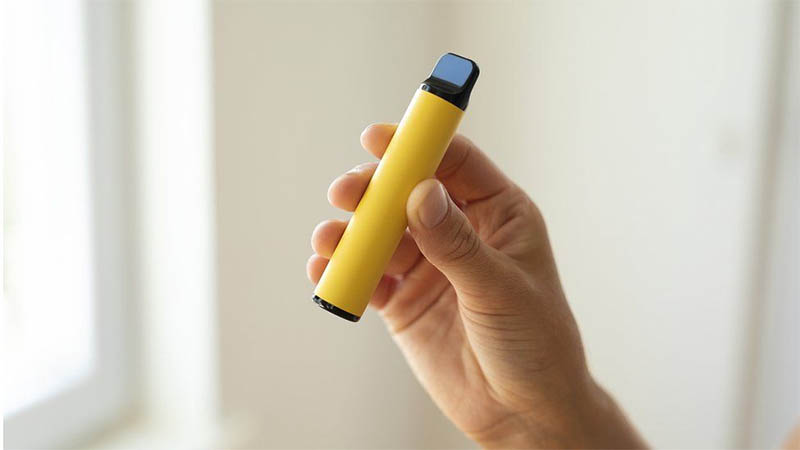
Alarming Surge: Daily Vaping Among Young Women in the UK Soars by Over 350%
Share0Data released by the Office for National Statistics (ONS) has revealed a concerning trend in e-cigarette usage among young women in the United Kingdom. In 2022, one in 15 women aged 16-24 (6.7%) reported vaping daily, a significant increase from the previous year when fewer than one in 50 (1.9%) used e-cigarettes daily. This surge in vaping has resulted in young women surpassing their male counterparts in e-cigarette usage.
According to a report by The Guardian on Tuesday, September 5, The ONS findings mirror those of an NHS survey of school-aged children conducted the previous year, which indicated that over one in five 15-year-old girls were using e-cigarettes, far surpassing the usage rates among boys of the same age.
The rise in e-cigarette use, particularly among young women, can be attributed to the growing availability of disposable vapes in recent years. These disposable devices are sold in a variety of appealing flavors such as pink lemonade, bubblegum, and watermelon ice, making them more enticing to younger demographics. Critics argue that these flavors contribute to their popularity among young people.
Several countries have taken steps to address the issue. In France, Prime Minister Élisabeth Borne announced plans to present a national ban on disposable e-cigarettes. Australia has already banned single-use vapes, while New Zealand has imposed restrictions on disposable vapes and enacted measures to curb their sale to young individuals. Germany has banned flavored e-cigarettes, and Ireland is currently considering a ban on single-use vapes.
The ONS data underscores the fact that in the UK, young women are now more likely to use e-cigarettes than young men. The proportion of young women occasionally vaping also increased from 7.1% in 2021 to 12.2% in 2022. Among 16- to 24-year-old men, 3.6% use e-cigarettes daily, and 8.7% vape occasionally. Overall, just under one in six individuals aged 16-24 vape at least occasionally, up from one in nine in 2021.
Meanwhile, the statistics reveal a positive trend in smoking rates, which have reached their lowest point since records began. Only 11.2% of people aged 16 and over reported smoking, down from 12.7% the previous year, continuing a long-term decline in smoking prevalence since 1974.
These findings have raised concerns among health professionals and policymakers. Amanda Pritchard, Chief Executive of NHS England, expressed alarm at the increase in vaping-related hospital admissions among children, with 40 cases reported in England in 2022, compared to just 11 in 2021. These cases include lung damage and worsening asthma symptoms. Pritchard emphasized the importance of addressing this issue to protect young people’s health.
Prime Minister Rishi Sunak has also voiced his concerns about the marketing and appeal of vapes to children, particularly his own daughters. The government responded by announcing plans to close a legal loophole that allowed retailers and marketing firms to distribute free vape samples to individuals under 18. Since vapes are not covered by tobacco advertising rules, they are not classified as tobacco products.
As the e-cigarette landscape continues to evolve, there is a growing urgency to address the rise in vaping among young women and its potential health consequences. Policymakers, health organizations, and the public are now faced with the challenge of finding effective measures to curb this concerning trend and protect the well-being of the younger generation.
